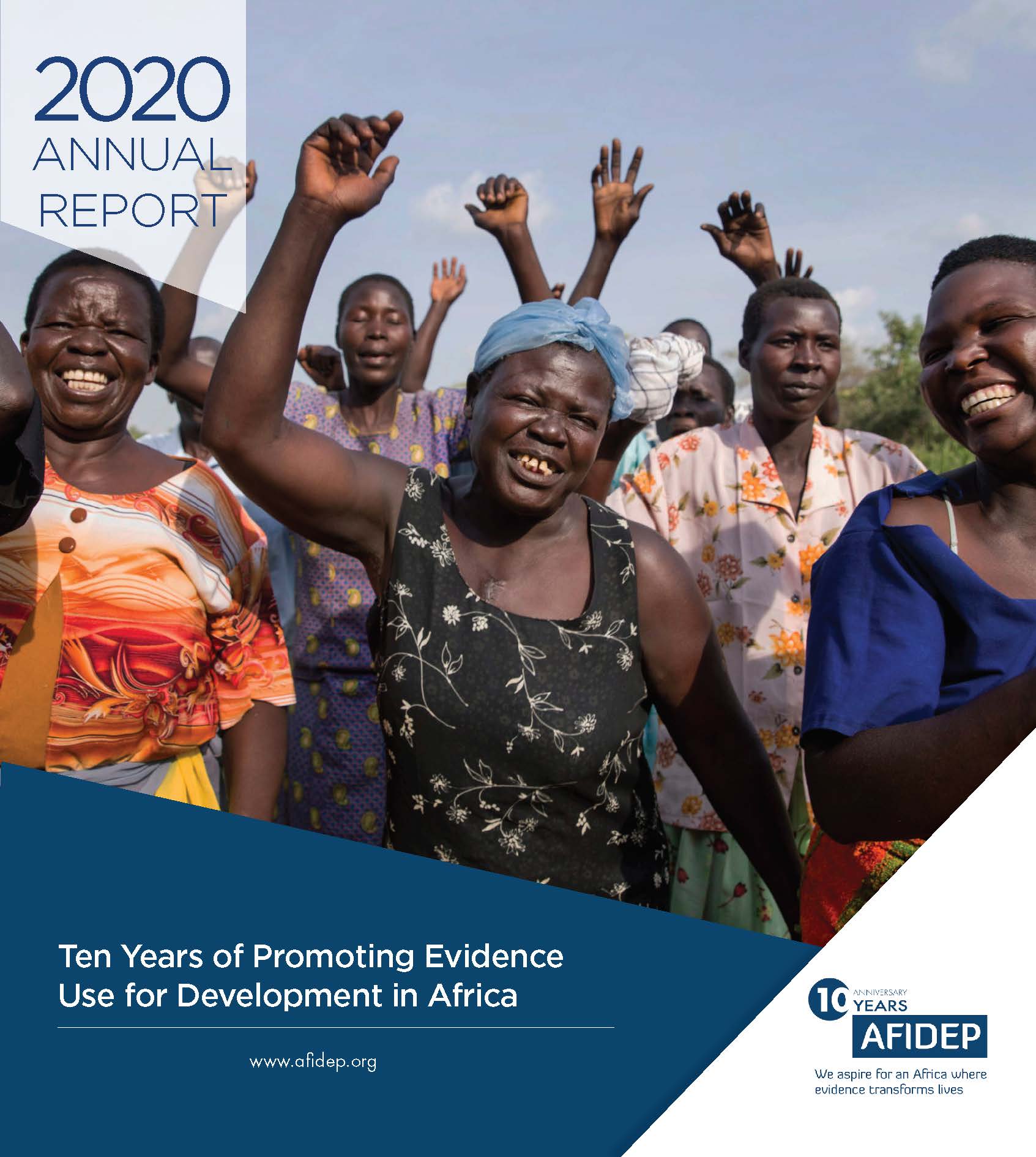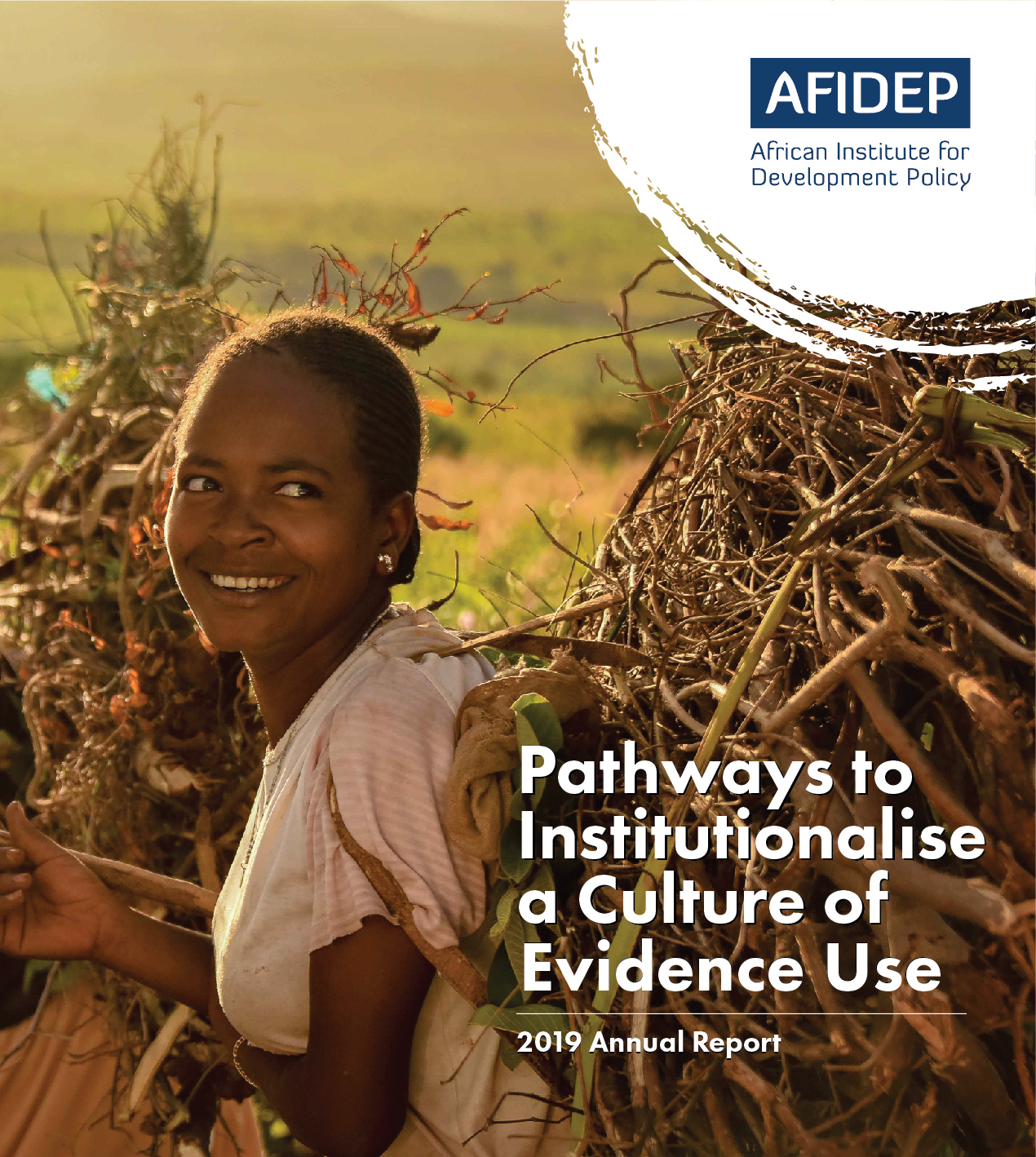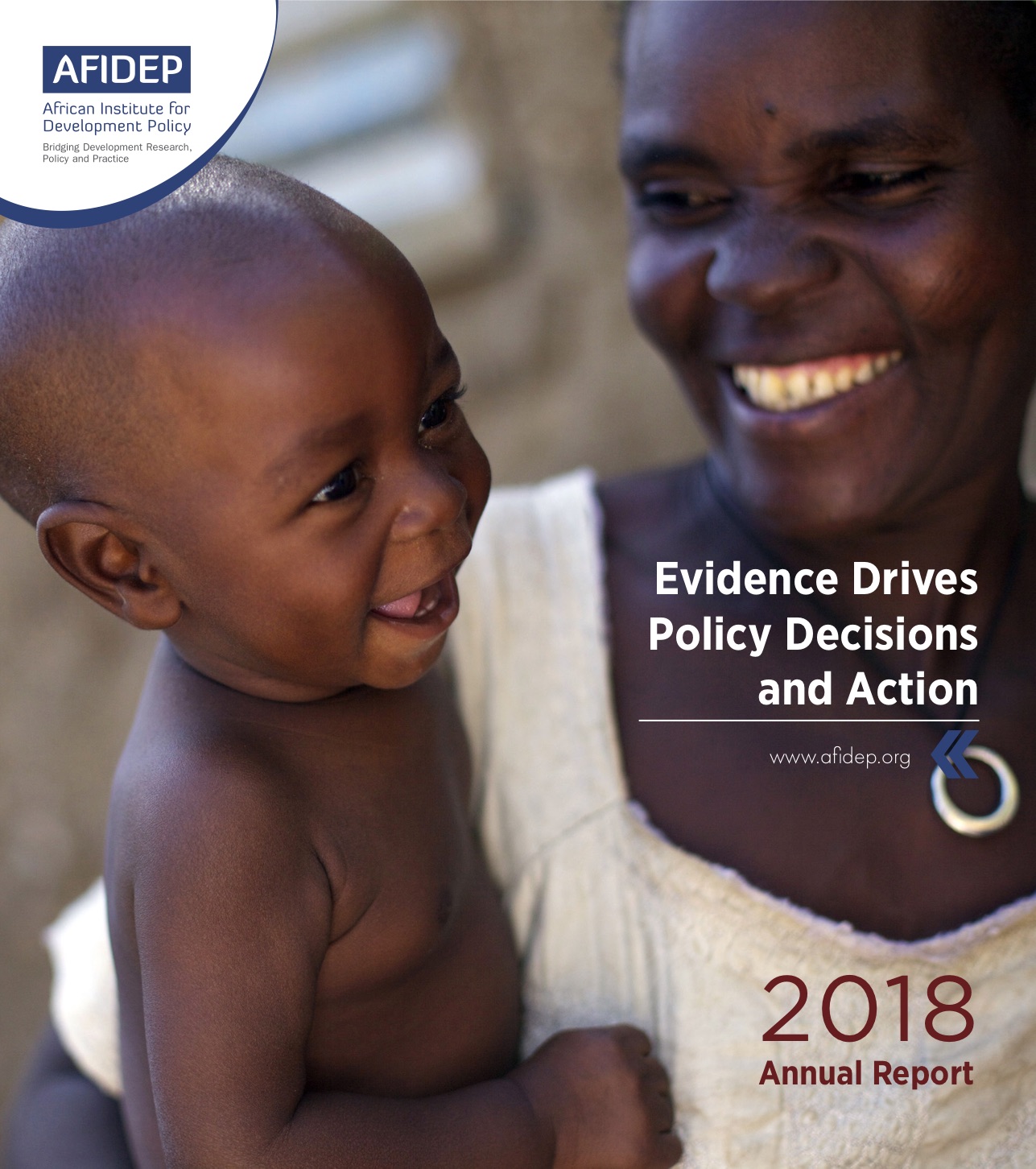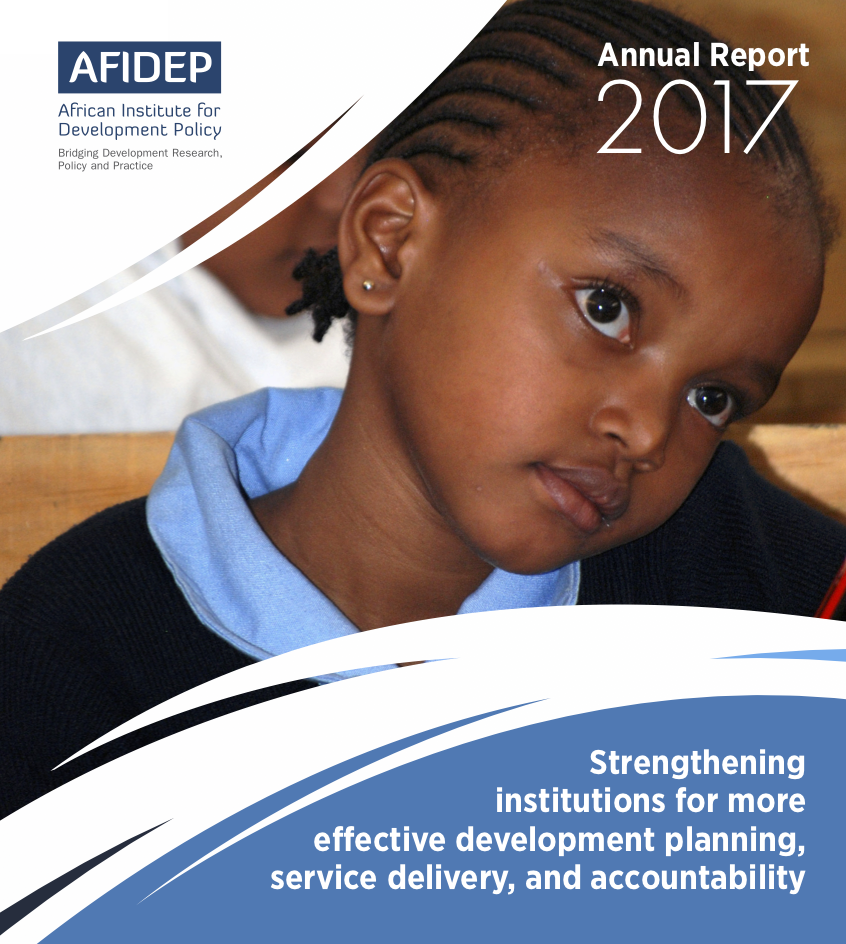Rapports annuels

At AFIDEP, we believe that robust, comprehensive, timely, relevant, and well-packaged evidence should inform all public policy formulation and implementation decisions to achieve optimal development outcomes. This 2021 annual report highlights our impact and the considerable progress we have made towards achieving the mandate of our We continue to build on our achievements and expand our partnerships to ensure evidence counts towards transforming people’s lives throughout Africa.

This year, AFIDEP marked 10 years of making evidence matter in Africa. The report highlights the impact and contribution AFIDEP has made to the development of the African continent since its founding in 2010. We also share insights on how the Institute has been at the forefront of COVID-19 response which the world has grappled with throughout the year. With the unprecedented challenges the COVID-19 pandemic has presented to Africa like the rest of the world, AFIDEP has been working with, and providing evidence to national governments to inform their response to the pandemic.

2019 was a good year for AFIDEP. Among our many feats, we developed Strategy 2024. The roll out of our new Strategy, in 2020, will coincide with a significant milestone of our institution, our 10th anniversary. AFIDEP is also increasingly recognised as the go-to research and policy institute, striving towards an Africa where evidence is consistently used to transform lives.

Our 2018 Annual Report shares what was phenomenal in building AFIDEP as a lead organisation in institutionalising a culture of evidence-informed policy formulation and implementation in Africa; how we made major strides in strengthening the capacity of governments to demand and use evidence in decision-making processes; and how we also expanded our work in strengthening the capacity of researchers in packaging and communicating evidence for use by policy-makers.

In 2017, AFIDEP contributed to promoting the value of evidence in policy formulation and development planning in Africa. We worked with government officials in Malawi, Namibia, Zambia, Rwanda, Botswana, Zimbabwe and eSwatini to co-produce evidence on the prospects for harnessing the demographic dividend. This informed strategic changes in the way the countries highlighted investments in human capital development in their medium and long-term development strategies.

